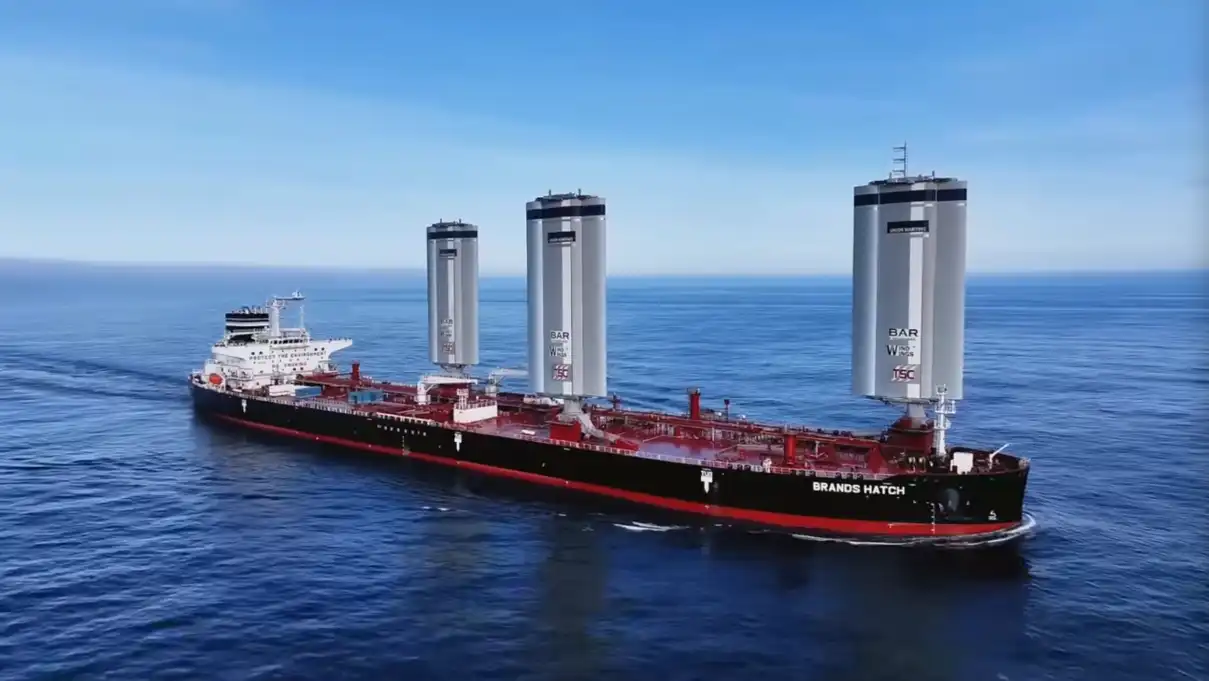Is WAPS designed for easy crew training and adoption?
The WAPS control interface is indeed designed with crew training and adoption in mind. TSC has invested considerable effort in creating a system that is both powerful and accessible, recognizing the importance of smooth integration into existing ship operations. The interface features a logical layout that guides users through various functions, making it intuitive even for those new to wind assisted propulsion systems.
Interactive tutorials and simulations
One of the standout features of the WAPS control interface is its built-in interactive tutorials. These step-by-step guides walk crew members through the system's functionalities, providing hands-on experience in a safe, simulated environment. This approach allows sailors to familiarize themselves with the system's capabilities without the pressure of live operations, significantly reducing the learning curve and boosting confidence in using the technology.
Customizable user profiles
The system supports multiple user profiles, allowing different crew members to customize their interface based on their roles and preferences. This feature not only enhances user comfort but also improves operational efficiency by providing quick access to the most relevant information and controls for each user. As crew members become more proficient with the system, they can gradually unlock advanced features, ensuring a smooth progression from basic to expert-level operation.
Multilingual support
Recognizing the global nature of the maritime industry, the WAPS control interface offers multilingual support. This feature is crucial for international crews, ensuring that language barriers do not hinder the effective use of the wind assisted propulsion system. The ability to switch between languages on the fly makes the system more inclusive and reduces the potential for misunderstandings during critical operations.
Real-time monitoring and alerts in WAPS control panels
The real-time monitoring capabilities of the WAPS control panels are a cornerstone of its user-friendly design. These features provide crews with up-to-the-minute information on the performance of the wind assisted propulsion system, enabling quick and informed decision-making.
Intuitive data visualization
Rather than overwhelming users with raw data, the WAPS interface employs intuitive visual representations of key metrics. Graphs, charts, and color-coded indicators make it easy for crew members to assess the system's performance at a glance. This visual approach to data presentation allows for rapid interpretation of complex information, enabling crews to make quick adjustments to optimize the wind assisted propulsion system's efficiency.
Predictive analytics
The WAPS control panels go beyond simple monitoring by incorporating predictive analytics. By analyzing historical data and current conditions, the system can forecast potential issues or opportunities for improved performance. This forward-looking feature allows crews to proactively adjust settings or schedule maintenance, enhancing the overall reliability and efficiency of the wind assisted propulsion system.
Customizable alerts and notifications
To ensure that critical information is never missed, the WAPS interface includes a robust alert system. Crews can set custom thresholds for various parameters, triggering notifications when these limits are approached or exceeded. The flexibility of this system allows for fine-tuning based on specific operational needs, reducing alarm fatigue while ensuring that important events are promptly addressed.
Strong Structure and Easy Maintenance
The user-friendliness of the WAPS control interface extends beyond its digital features to encompass the physical structure and maintenance aspects of the system. TSC has designed the wind assisted propulsion system with durability and ease of upkeep in mind, recognizing that these factors are crucial for long-term adoption and satisfaction.
Modular design for simple upgrades
The WAPS hardware is built with a modular approach, allowing for easy replacement of individual components when necessary. This design philosophy not only simplifies maintenance tasks but also facilitates future upgrades. Crews can perform many routine maintenance procedures without the need for specialized tools or extensive technical knowledge, reducing downtime and maintenance costs.
Self-diagnostic capabilities
Integrated into the WAPS control interface is a sophisticated self-diagnostic system. This feature continuously monitors the health of various components, alerting crews to potential issues before they escalate into serious problems. The self-diagnostic tool provides clear, actionable information, guiding maintenance personnel through troubleshooting processes and often enabling remote diagnosis and support.
Comprehensive maintenance logs
The control interface includes a detailed maintenance logging system, automatically recording all maintenance activities, system updates, and performance metrics. This comprehensive record-keeping not only aids in tracking the system's history but also helps in planning future maintenance schedules and identifying patterns that might indicate underlying issues. The user-friendly interface makes it easy for crew members to input manual entries and retrieve historical data when needed.
Finally, the WAPS control interface sets a new standard for user-friendliness in wind assisted propulsion systems. By combining intuitive design, real-time monitoring, and robust maintenance features, TSC has created a system that empowers crews to maximize the benefits of wind propulsion technology while minimizing the learning curve and operational challenges.
For those in the chemical synthesis, oil refining, semiconductor, solar PV, renewable energy storage, green fuels, or hydrogen metallurgy industries looking to enhance their maritime operations with cutting-edge wind assisted propulsion technology, CM Energy offers unparalleled solutions. Our expertise in marine energy solutions and commitment to sustainable innovations make us the ideal partner for your wind propulsion needs. To learn more about how our WAPS technology can benefit your operations, please contact us at info.cn@cm-energy.com. Let CM Energy help you navigate towards a more sustainable and efficient future in maritime transport.
References
- Maritime Technology Quarterly, "Advancements in Wind Assisted Propulsion Systems for Commercial Vessels", 2024 Edition
- Journal of Sustainable Shipping, "User Experience in Modern Ship Control Interfaces", Volume 15, Issue 3
- International Conference on Marine Engineering, "Crew Adaptation to New Propulsion Technologies", Proceedings 2023
- Marine Control Systems Review, "Real-time Monitoring and Predictive Maintenance in Maritime Applications", Fall 2024 Issue
- Nautical Institute Technical Report, "Training Methodologies for Advanced Ship Propulsion Systems", Report No. 2024-07
- Green Shipping International, "User-Centric Design in Eco-Friendly Maritime Technologies", Volume 8, Issue 2

